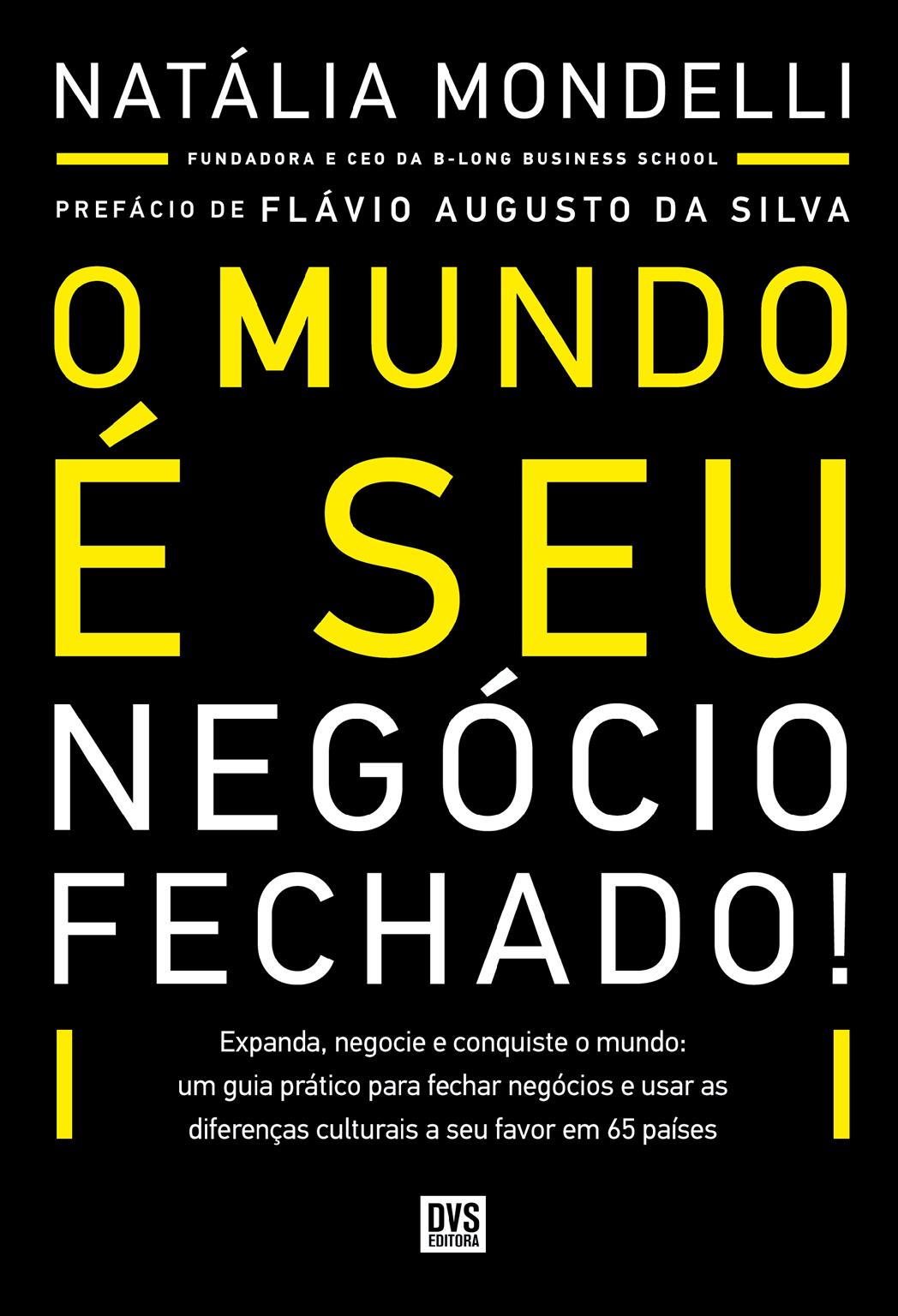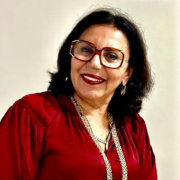
With a career spanning five continents and over 80 countries visited, Brazilian businesswoman and educator Natália Mondelli shares in O mundo é seu: negócio fechado! — published by DVS Editora — the key lessons she learned from negotiating with different cultures. The book offers a practical and human perspective on the importance of intercultural skills in global business and is a must-read for anyone looking to expand their connections beyond geographic borders.
Throughout your career, you’ve traveled to over 80 countries, experiencing experiences that challenge any comfort zone. What was the most unusual—or perhaps transformative—moment when you realized, in practice, the power of intercultural empathy in a negotiation?
It was definitely my experience on a ship, where I found myself in a confined environment, in an extreme situation bordering on slave labor, with around 70 different nationalities on board. This experience was very challenging because everyone in the same confined environment, everyone working together, with so many cultural differences, was a learning experience for me. So, I consider this moment the most challenging, but at the same time the moment that most helped me develop empathy and a more sensitive perspective on cultural differences.
The book explores how simple gestures, like offering sugar for tea, can have unexpected interpretations in other cultures. How did you develop the sensitivity to notice these “silent details” and handle them without losing spontaneity?
I think this has always been a big part of my personality, as I’ve always tried to be very empathetic with everyone around me, and since I was little, I’ve also been around people with very difficult personalities, which helped me awaken and develop these very strong social skills. I also think I developed this aptitude by making mistakes many times and putting myself in someone else’s shoes. I always take any situation, even a negative one, as a little lesson for life.
In cultures where relationships come before contracts, rushing can be seen as disrespectful. How have you learned to slow down and adapt your pace without compromising your goals as a global entrepreneur?
The truth is, I haven’t yet learned to slow down completely. I’m a very busy person and work on multiple fronts, with different businesses going on at the same time. But when I think about slowing down to respect the timing and rhythm of a negotiation, especially regarding the importance of building a relationship before a contract, then I do believe I’ve evolved somewhat. I believe this point is fundamental: building a long-term relationship in international negotiations is invaluable. When we can establish this kind of connection, it becomes more natural to respect each other’s timing and rituals, avoiding attitudes that could be interpreted as disrespect.
You talk about the importance of wearing the “badge of humility” and laughing at your own mistakes. What was one of those moments that, despite the initial embarrassment, taught you something no postgraduate degree could offer?
I think a big lesson I learned about this “badge of humility” and about laughing at one’s own mistakes happened when I bought my apartment in Switzerland. I had to negotiate interest rates with the bank, compare proposals from different institutions, and then faced the challenge of renovating the property. I learned a lot during this process, especially about the importance of adopting a humble attitude when we’re in a completely new environment. It was my first renovation abroad, and I didn’t even know how to hire a carpenter, plumber, painter, or bricklayer. From these practical issues, I realized how crucial it is to recognize our limitations, be open to learning, and even laugh at our own mistakes. Miscommunication, both in language and due to cultural differences, is inevitable. Therefore, this episode had a profound impact on me, both because of the experience of negotiating with banks and funds for the property purchase and the intense learning experience during the renovation.

Your writing style reveals warmth, generosity, and humor—even when dealing with complex topics like international negotiations and social responsibility. How do you balance lightness with depth when communicating such strategic topics for leaders and entrepreneurs?
The way I write reflects exactly how I act in life. Despite dealing with more complex topics, such as international negotiations, business training, and integration, which are the areas in which I work abroad, I never lose my lightness or humor. I believe that to position yourself, you don’t need to adopt a rigid posture, a stern face, or wear a mask. It’s entirely possible to combine professionalism with good humor and lightheartedness. This combination is definitely part of who I am.
In your book, you mention body language as a silent tool. What was it like learning to “read the bodies” of people across cultures—and when has it made a difference in a negotiation?
Body language, for me, has become a silent compass. Learning to interpret it with empathy and respect has taught me to adjust the tone, timing, and even the content of conversations, and has often been the deciding factor between a failed deal and an enthusiastically signed contract.
Living in such a cosmopolitan city as Basel, you’re certainly exposed to multiple perspectives every day. How does this environment influence the way you approach business and build bridges between such diverse cultures?
Living in Basel is like waking up every day at a crossroads of worlds. The city is in the heart of Europe, but it pulsates with voices from around the world: Indian executives, African artists, American entrepreneurs, Syrian refugees, and German, French, and Swiss neighbors sharing coffee, trains, and ideas. This daily coexistence taught me that diversity isn’t a concept, it’s a practice. It made me realize that the most innovative solutions in business often arise from the creative friction between different worldviews. Basel taught me to listen patiently, to negotiate flexibly, and to build bridges where there were once invisible cultural walls. In my daily life, this cosmopolitan environment challenges me to revise my assumptions and constantly adapt my communication. And that’s precisely what allowed me to create a business school with an international DNA, an NGO with a real social impact, and now a book that translates these experiences into accessible learning for global leaders and entrepreneurs. Basel not only expanded my cultural repertoire, it expanded the way I understand collaboration, belonging, and strategy on the global stage.
You’re an entrepreneur, educator, NGO founder, and now the author of a book that inspires so many. What motivates you every day to continue crossing borders—physical and cultural—and what do you still dream of achieving in this global arena?
What drives me is the conviction that the world is much bigger than we’ve been taught and that the greatest transformations happen when we allow ourselves to inhabit this world with courage and curiosity. Every border I’ve crossed, physical or symbolic, has taught me something new about myself, about others, and about the possibilities that exist when cultures meet respectfully. Seeing the sparkle in the eyes of an immigrant who feels recognized, a businessman who closes his or her first international contract, or a reader who identifies with a story I’ve experienced, that fuels me. My mission has always been to pave the way. And if I can make someone’s path lighter, clearer, or bolder, then every effort is worth it. I still dream big. I want my business school to reach leaders on every continent, my social initiatives to become a benchmark for integration, and the books I write to help shape a new generation of conscious entrepreneurs—those who aren’t afraid of the unknown, who understand the value of differences, and who build bridges where no one imagined possible. Because crossing borders, for me, has never been about distance, it’s always been about impact.
Follow Natália Mondelli on Instagram


